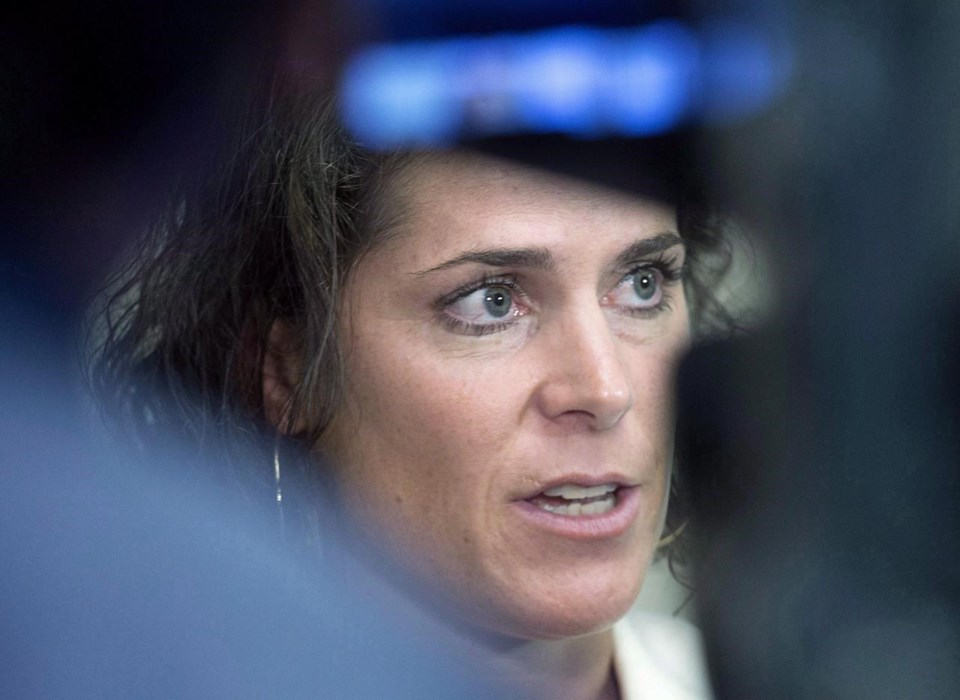Recent deaths of several First Nations people in Atlantic Canadian jails have prompted calls for Indigenous-led inquiries and systemic change in the justice system.
Groups focused on women and justice in Nova Scotia are calling for Mi'kmaq-led inquiries into the deaths this year of two First Nations people — 36-year-old Sarah Rose Denny and 27-year-old Peter Paul — in the provincial justice system. In New Brunswick, the Wolastoqey Nation is calling for an Indigenous-led inquiry into systemic racism in the justice system after the conclusion Thursday of an inquest into the death of 28-year-old Skyler Sappier.
"We know that Indigenous people, particularly Indigenous women, are the fastest-growing prison population in Canada. We know that's because we have failed Indigenous people so badly for so long," said Emma Halpern, who is with the Prisoner Advocacy and Transformational Hub and the Elizabeth Fry Society of Mainland Nova Scotia. "We have to learn from this, or it's just going to keep happening."
Halpern represents the Denny family. She said Denny died in hospital of pneumonia after being transferred there from the Central Nova Scotia Correctional Facility in the Halifax suburb of Dartmouth. She died less than two weeks after she was arrested, Halpern said in an interview Friday, adding that arresting officers had been informed Denny was sick.
Halpern said Denny was arrested for breaching the condition that she stay at her mother's home while on house arrest. But Denny's mother has terminal cancer, so when Denny fell ill she went to stay with her boyfriend, Halpern said.
"It's a tragedy that Sarah was in jail at all," she said.
Paul died by suicide in January while in custody at the Cape Breton Correctional Facility. The Prisoner Advocacy and Transformational Hub and the East Coast Prison Justice Society wrote to the provincial justice minister on Wednesday asking that he establish a Mi’kmaq-led fatality inquiry into their deaths, with the support of their families.
Peter McLaughlin, a spokesperson for Nova Scotia's Justice Department, said Denny's and Paul's deaths are "heartbreaking." The correctional services division has conducted internal reviews of both deaths, he said in an email.
"Information from an investigation by the Nova Scotia medical examiner's service will also be reviewed by the department. We expect to make a decision on next steps soon," he said.
In New Brunswick, Sappier died in hospital on Jan. 31, 2022, two days after he was taken there from the Saint John Regional Correctional Centre. A three-day coroner's inquest into his death concluded Thursday, and included testimony from 23 witnesses.
A news release Thursday from the Wolastoqey Nation says the five-member jury heard that Sappier was put in a cell with an inmate who had tested positive for COVID-19. The release says he was taken to hospital three days after he began complaining of chest pains and trouble breathing. He was given Tylenol and Advil by staff at the jail, the release said.
“There was a shocking contrast between the compassionate, caring testimony provided by hospital staff and the level of ambivalence displayed by correctional staff in this incident," Neqotkuk Chief Ross Perley said in the release. "I have no faith, after sitting through this inquest, that other Indigenous people will not face the same risk to their life in provincial correctional facilities."
The jury made more than 20 recommendations, including ensuring that inmates are checked on every 15 minutes and are asked how they are doing when placed in a medical cell. The jury also recommended that nurses be able to enter a medical cell and check on an inmate, and that officials "provide medical attention and mental health services when they are needed."
This report by The Canadian Press was first published May 19, 2023.
Sarah Smellie, The Canadian Press




